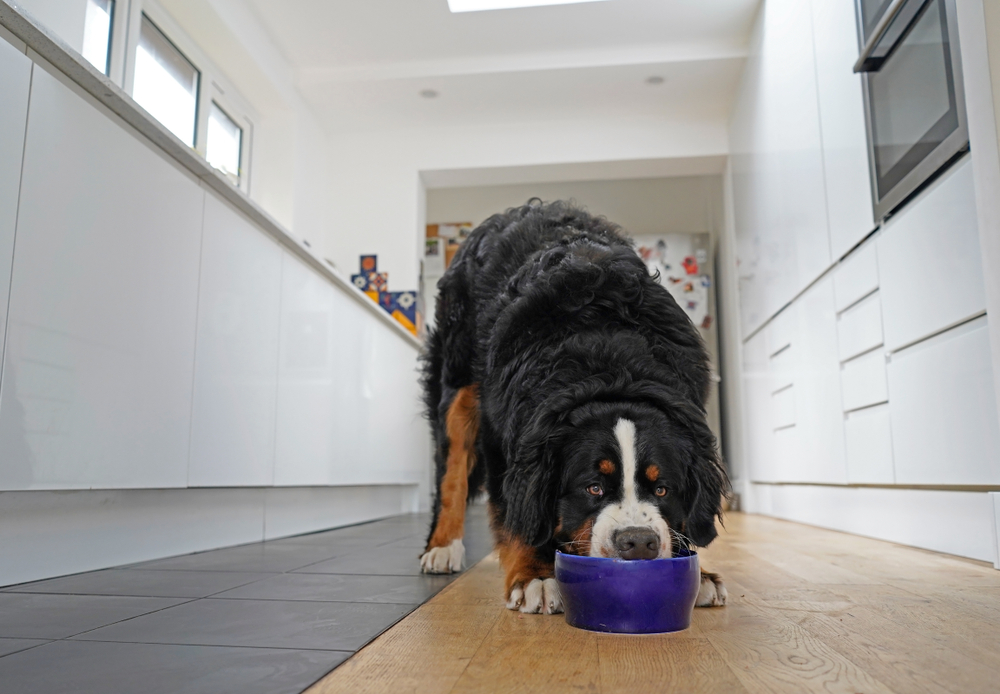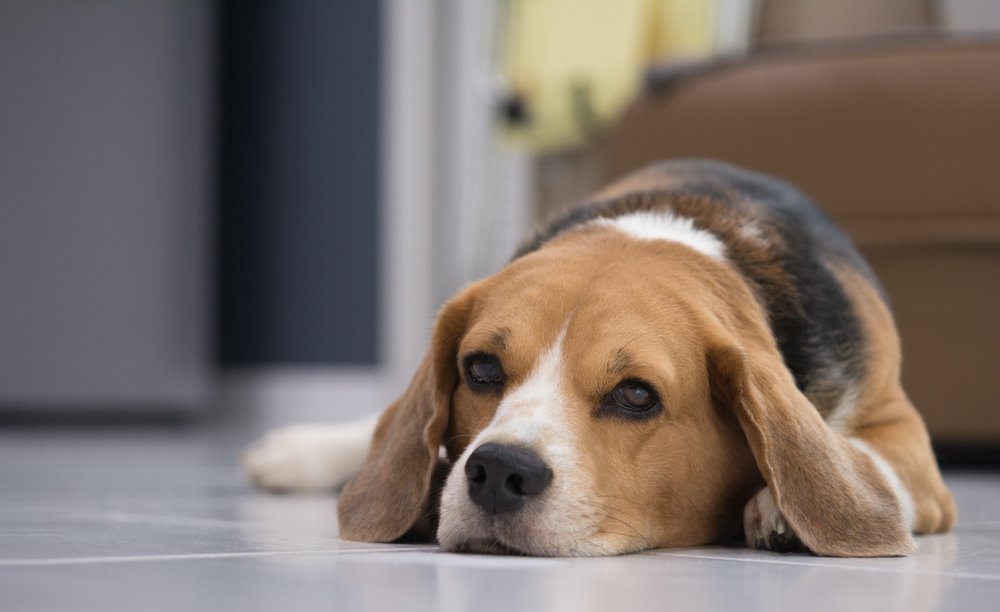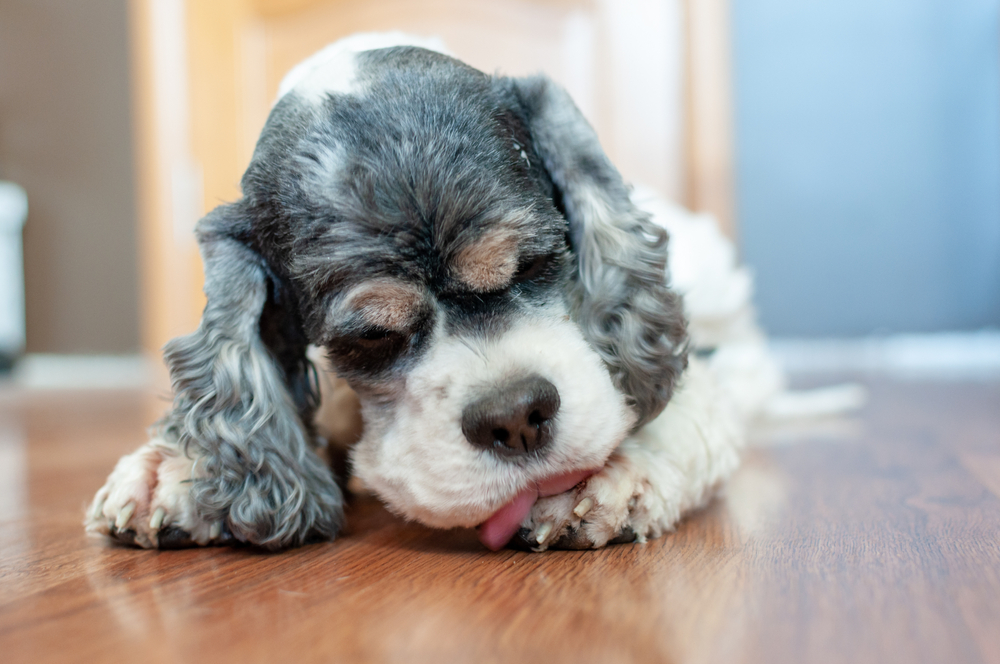Click to Skip Ahead
If your dog is guarding their food, you may be concerned by the behavior. But why do so many dogs do this, and how can you get them to stop? Even if you don’t think it’s a problem now, it can quickly escalate and lead to a dangerous situation.
With that in mind, we’ve highlighted several common reasons for food guarding and tips and tricks to get them to stop!
The 5 Common Reasons Why Dogs Guard Their Food
1. Anxiety
| Likelihood: | Very high |
| Severity of issue: | High |
Anxiety is by far the most common reason dogs guard their food. Whether it’s from primal instincts, past traumas, or something else entirely, they don’t want anyone to get near them when they’re eating.
You can help them by ensuring they have consistent feeding times, adequate portions, enough toys to play with, and enough exercise. Don’t remove your dog’s food from them once they’ve started eating, and don’t allow other dogs to eat in the same room.

2. Improper Training
| Likelihood: | Moderate |
| Severity of issue: | Very high |
If a dog’s owner takes away their food while they’re eating it, it can lead to food aggression. Your dog wants to finish their meal, and if they think you’re going to take it and not give it back, they may respond with anger.
A previous owner may have treated your dog badly and teased them when they were eating. Give your dog space, and don’t engage with them until they’ve finished their meal.
3. Lack of Consistency
| Likelihood: | Moderate |
| Severity of issue: | High |
Having a consistent feeding time and feeding your dog consistent portions is critical to preventing and treating food guarding and aggression. Your dog needs to know what to expect, including the amount of food and when it will be fed.
Consistency can help calm your dog’s nerves and let them know they don’t need to guard their food. They’ll learn that you will put more back in the bowl when dinner time comes!
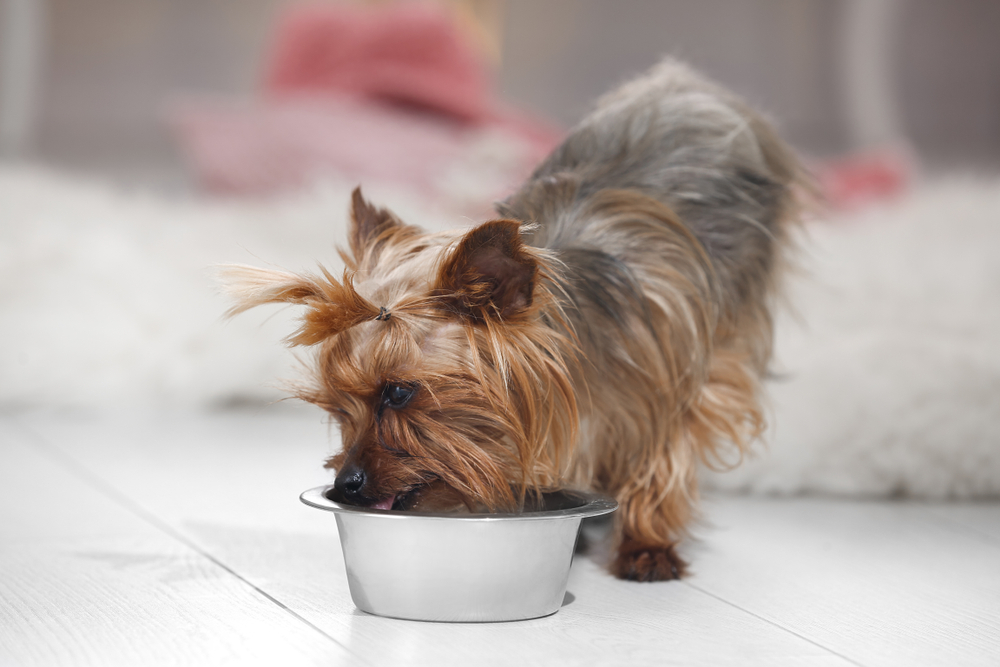
4. Lack of Confidence
| Likelihood: | Low |
| Severity of issue: | High |
This isn’t the most common reason a dog might guard their food, but it happens with timid dogs. Dogs that lack confidence are more likely to experience anxiety when their environment changes or they feel threatened.
It could be new people in the home, another dog, a different feeding time, or something else entirely. However, a dog that doesn’t have the confidence to handle different situations may be more likely to display food guarding behaviors. Socializing your pet with new people and environments can build their confidence and reduce anxiety.
5. Other Dogs
| Likelihood: | Moderate |
| Severity of issue: | Very high |
Do you live in a multi-dog home? If so, consider having separate feeding areas for each dog. A common cause of food aggression in dogs is a fear that they won’t be able to get enough food because the other dog(s) will take some.
Giving them their own dedicated portions can eliminate this fear and sometimes eliminate food aggression problems. Even if it doesn’t solve the problem, you still shouldn’t feed a dog with food aggression around other dogs since it can lead to fighting.

How to Prevent & Treat Resource Guarding
Although you might not think resource guarding is a big deal for your pup, it doesn’t take long for a situation to turn into a problem. You can prevent resource guarding by staying consistent with their feeding schedule early on, giving them a place to eat away from other dogs, socializing them, and avoiding negative reinforcement techniques.
However, if your dog already has resource guarding and food aggression problems, you’ll need to take action. Keep in mind that your dog’s size and temperament play a huge role in when you should attempt rectifying this yourself and when you need to get outside help.
The 4 Tips to Treat Resource Guarding
As long as you feel safe handling your dog in all situations, you can attempt any of the following tips to reduce resource-guarding behaviors.
1. Ensure They Have Sufficient Resources
It’s vital to ensure your dog is getting enough food and water and has easy access to them at mealtimes. Establishing a feeding routine and keeping the portions the same can help them stay calm at mealtimes.
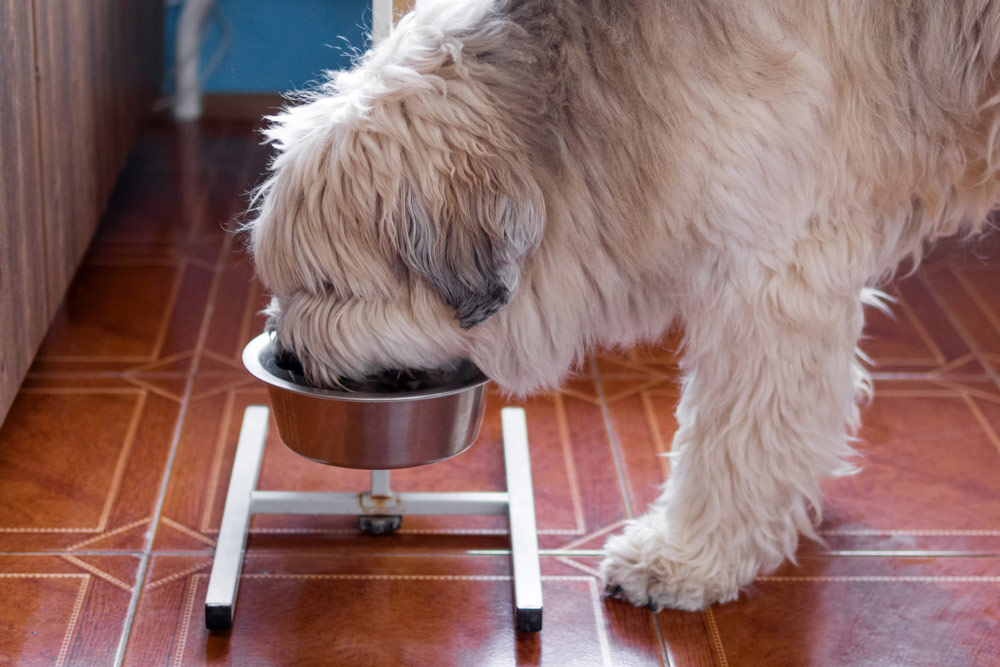
2. Use Positive Reinforcement
When your dog is doing what they should, lavish them with praise, and if they’re doing something they shouldn’t, don’t respond with aggression. You can praise your dog when they’re calm while eating, and eventually, they’ll associate mealtime with a positive experience.
3. Sequester Dogs as Needed
If your dog has a problem with other dogs around their food, ensure they’re not near each other when eating. Ensure each dog has a food bowl and a place to eat in private; that way, they’re not competing for resources.

4. Teach “leave” and “give” cues
Research has shown that teaching your dog to leave or give an item to you helps to reduce resource-guarding behaviors. Always pair the actions (the dog giving something up) with a reward, and offer a trade if you want to take something away. For example, if you want to take a toy away from your dog, swap it with a high value treat that you are happy for them to have.
Give the toy back to your dog once it has relinquished it to you so that it doesn’t learn that giving something up means it is gone forever.
Conclusion
Food guarding can be a problematic and frustrating issue, but with a little education, training, and consistency, there’s no reason you can’t get it under control. However, don’t be afraid to get outside help, and don’t push too quickly, or your pup could wind up hurting you while trying to protect their food.
Featured Image Credit: Kristesoro, Shutterstock

